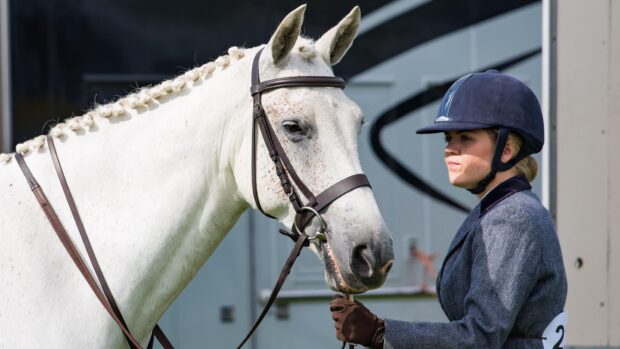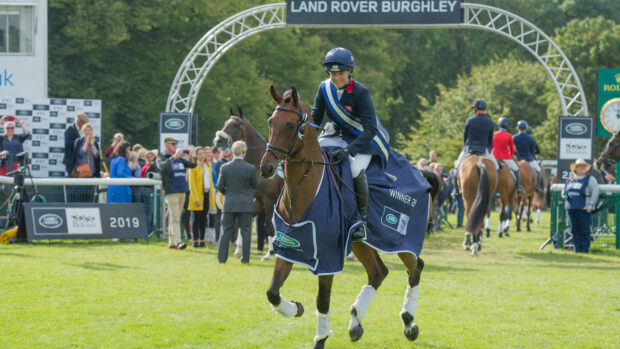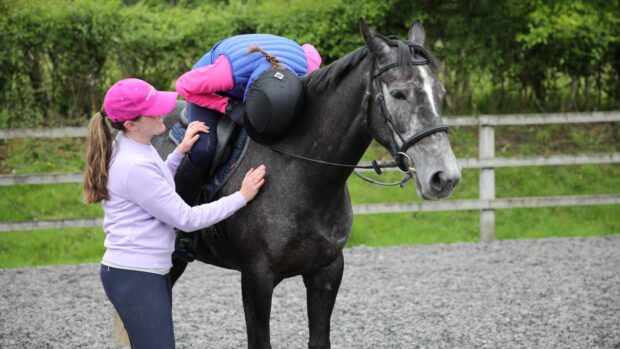US dressage rider, trainer and author Jane Savoie, who passed away in December 2020, explains how to stop anxiety from impacting on your competition performance
A rider has a talented horse, which is working well at home, but when they go out to a competition their performance goes to pieces. Does this sound familiar?
Tension can be a major problem at competitions. When you’re tense, your work can’t be of as high quality as when you’re relaxed. That’s true for both horses and riders. A certain rush of adrenalin is normal, and even welcome, but when you’re so tense that you feel immobilised, you’ve got a problem.
First, try to figure out why you get so nervous at shows. Are you worried about what people think of you? Have you put unrealistic pressure on yourself to win? Are you afraid you won’t measure up to the expectations of others?
If these things make you nervous, focus on “performance goals” rather than “result goals”. In other words, rather than having a goal of scoring 65% or placing in the top three, make a new goal that reflects your effort rather than the outcome. For example, how about maintaining a metronome-like rhythm for an entire dressage test, or focusing on your breathing while jumping round a course?
Do you ride defensively because you’re worried that your horse will be fresh? If so, consider giving him some time on the lunge before heading off to the show, and then again on arrival if possible. Arrive early enough that you can walk him round in hand and allow him to see the sights and relax before the venue gets too busy.
Stage some dress rehearsals by hiring out a range of venues, or even by just visiting other local yards with suitable facilities. Treat it like a show day with your preparations, turnout, clothing etc and on arrival, warm up and “compete” like you would at a real competition. Do this frequently until going to a new place and “performing” gets to be old hat for both of you.
Physical tension
Think about what happens to you physically when you’re tense. Muscles get tight while respiration and heart rate increase. With a little work, you can learn to regulate these reactions.
The more you tighten a muscle, the more deeply it relaxes when you let go. To learn the feeling of muscular relaxation, sit in a chair and tense every muscle in your body. Hold the tension until your body quivers. Then let go and feel yourself sinking heavily down into your chair.
Now, go through this process starting at your head and working down to your feet section by section. Each time you release the tension in a muscle group, anchor this feeling of deep relaxation. Eventually as you ride, you can scan your body for tight places and make a conscious decision to relax those areas.
Normally, when you’re tense, your respiration becomes more rapid and shallow, and you may occasionally hold your breath. To combat this, practice deep breathing. As you inhale through your nose, keep your shoulders down and let your stomach get “fat”. As you exhale through your mouth, feel your seat lowering into the saddle so that you “dissolve” into your horse’s body. Consciously breathe like this when you first get on, during every break, and as you go around the outside of the arena. One of your performance goals can be to take a deep breath in every corner.
You can also train yourself to regulate your heart rate by using the stress and recovery cycle that occurs during exercise. Go for a 20min walk and periodically increase your heart rate by walking faster or even jogging for 10-30 seconds. Each time you slow back down to a comfortable walk and feel your heart rate and breathing returning to normal, anchor this feeling and aim to recreate it when you ride.
Remember you’re not alone. Everyone gets tense when competing. Contrary to popular opinion, professionals are not immune to sweaty palms and rubbery legs. But the exciting thing is that you can learn to deal with your anxiety so that you can still do your job well and enjoy yourself. All it takes is some handy tools in your toolbox.
Are you sick and tired of complicated and confusing training techniques? Are you frustrated by negative emotions like fear and lack of confidence? Would you like to be trained by a Three Time Olympic Coach? Learn how by going to: www.janesavoie.com



